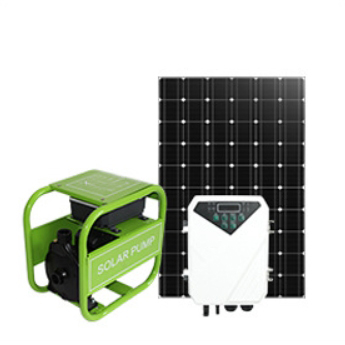Introduction
Choosing the right water pump for your home, agricultural, or landscaping needs can significantly impact your water usage efficiency and cost-effectiveness. In this guide, we explore the distinctions between solar water pumps and regular water pumps, helping you decide which is best suited for your specific situations.
Understanding Solar Water Pumps
Solar water pumps are an innovative solution for areas lacking reliable electricity. They use photovoltaic panels to convert sunlight directly into electricity to power an electric motor that runs the pump.
Advantages of Solar Water Pumps
- Eco-Friendly: Produces no pollutants, as they operate entirely on solar energy.
- Cost-Effective in the Long Run: No ongoing fuel or electricity costs, which can significantly reduce operating expenses over time.
- Low Maintenance Needs: Fewer moving parts mean there is less that can break down.
- Independence from the Grid: Ideal for remote locations where electrical grid access is non-existent or unreliable.
Considerations
- Higher Initial Investment: The initial setup cost for solar panels and sometimes a battery backup system can be high.
- Weather Dependent: Their efficiency heavily depends on the availability of sunlight.
Understanding Regular Water Pumps
Regular water pumps, which can be powered by electricity or diesel, are widely used due to their reliability and high performance.
Advantages of Regular Water Pumps
- Consistent and Powerful: These pumps can handle large volumes of water, making them suitable for a wide range of applications.
- Versatility: They perform well in diverse environments, including low-light areas where solar pumps would be ineffective.
Considerations
- Ongoing Energy Costs: They require a continuous supply of electricity or diesel, which can be costly.
- Environmental Impact: Diesel pumps emit pollutants, and electric pumps may rely on non-renewable energy sources.
Key Factors to Consider
When choosing between a solar and a regular water pump, consider the following key factors:
Location and Climate
- Sunlight Availability: Solar pumps are more suitable in sunny regions. Using data from solar energy maps can help determine this factor precisely.
- Electrical Infrastructure: In urban areas or places with stable infrastructure, regular pumps may be more reliable and easier to integrate.
Operational Needs
- Volume and Usage: Estimate the amount of water you need daily. For high-volume requirements, regular pumps might be more effective.
- Usage Timing: Solar pumps are ideal for daytime operation unless paired with batteries, which can store energy for nighttime use.
Budget and Long-Term Planning
- Upfront Costs vs. Long-Term Savings: While solar pumps might be expensive initially, they can potentially offer greater savings over time through reduced operational costs.
Conclusion
The decision between a solar water pump and a regular water pump hinges on various factors including environmental conditions, cost considerations, and personal preferences. By assessing your specific needs and the potential long-term benefits, you can choose the most suitable option to ensure a reliable and cost-effective water supply.









